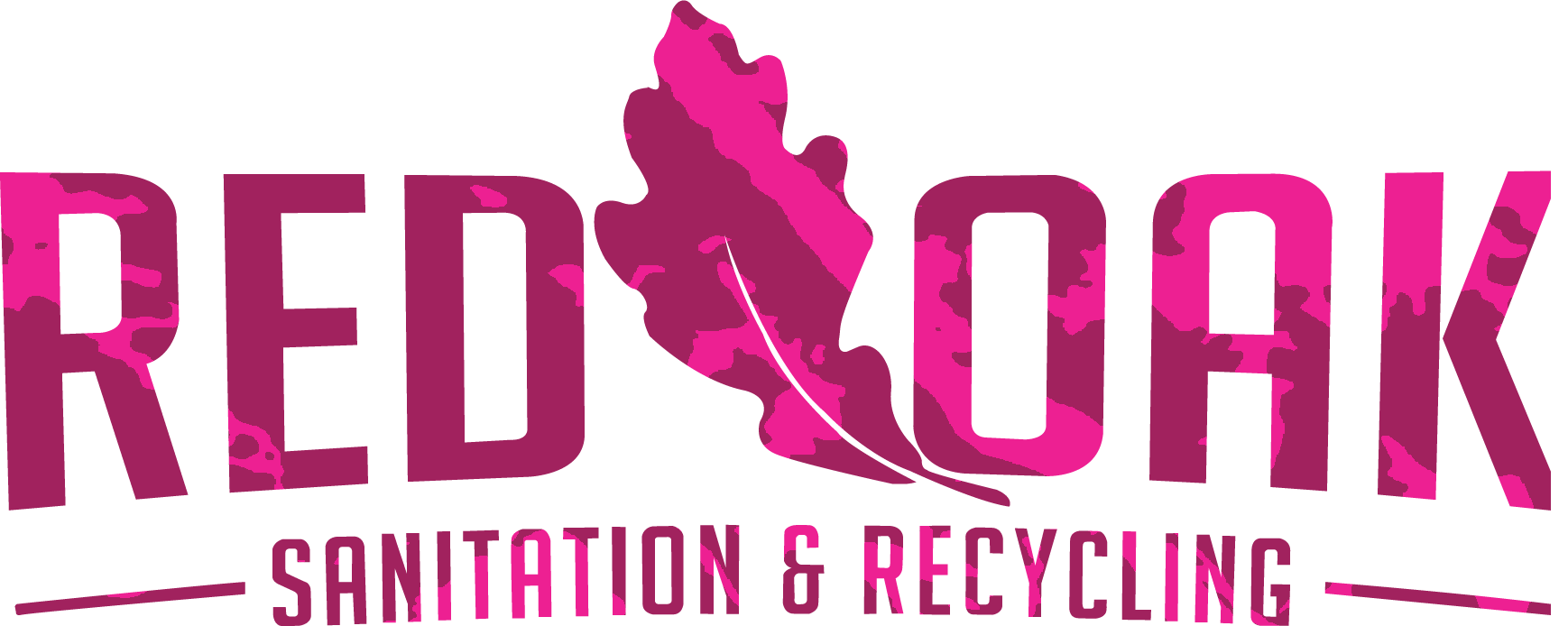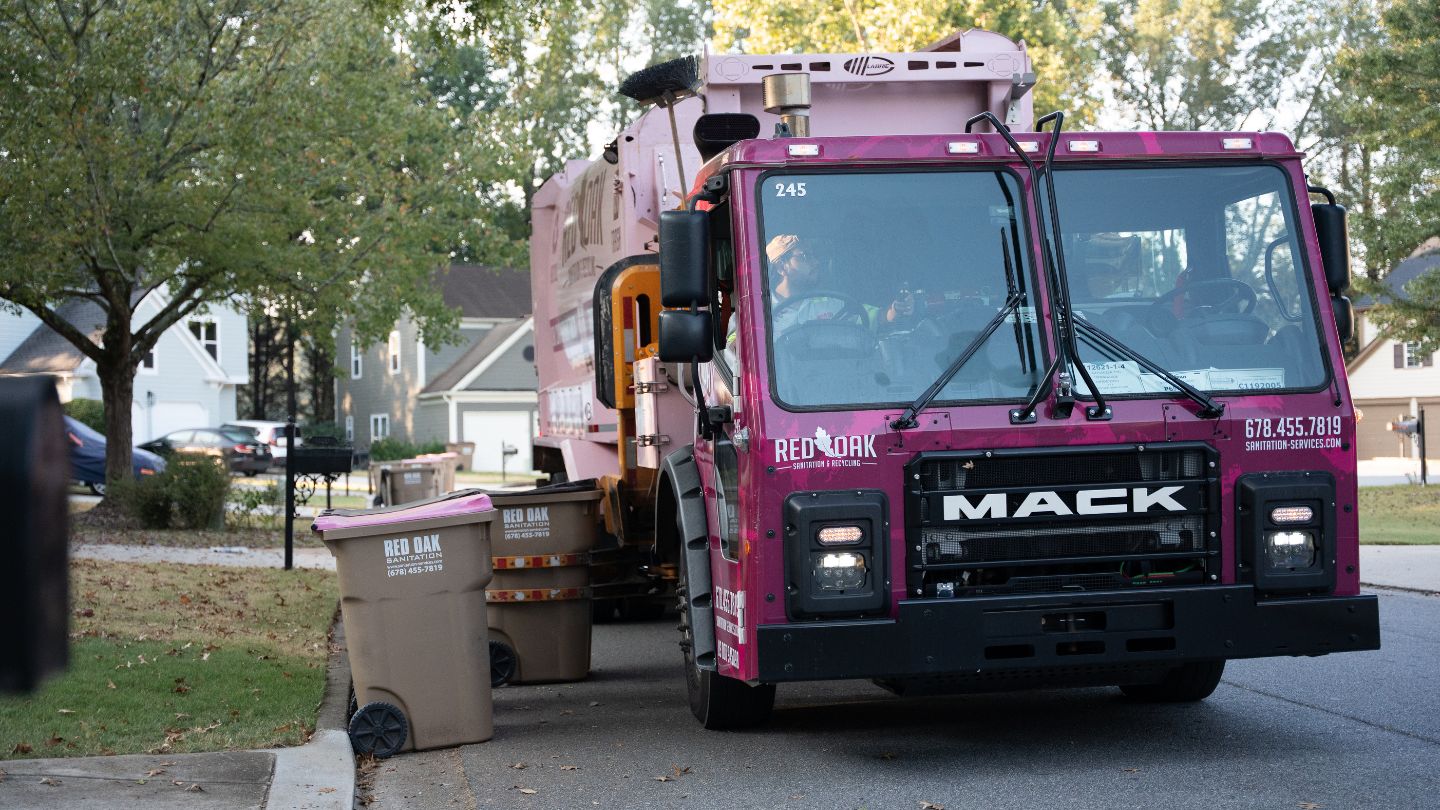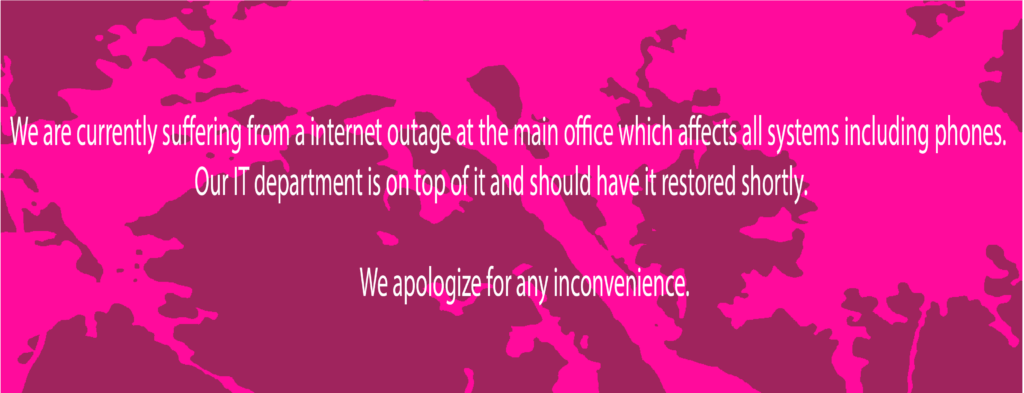Maintaining a clean, uniform, and visually appealing neighborhood is one of the top priorities for any HOA community. Proper trash can placement and compliance with HOA waste regulations play a significant role in achieving that goal. Adhering to these guidelines ensures smooth waste collection while preventing cluttered or unsightly streets. It also promotes community harmony and upholds property values. In this blog, we’ll discuss why HOA trash can compliance matters and how to stay aligned with community standards.
Key Takeaways
- HOA trash can rules aim to maintain neighborhood aesthetics and property values by establishing standards for bin placement and management.
- Regulations must be aligned with state laws and HOA governing documents to ensure enforceability and community compliance.
- Common issues affecting compliance include inadequate trash services and seasonal volume increases, which can be addressed through strategic planning and tailored waste management solutions.
Understanding HOA Trash Can Rules
HOA trash can rules are designed to maintain the cleanliness and visual appeal of the community, which in turn helps keep property values high and the neighborhood attractive. These rules typically outline when residents should place their trash and recycling bins at the curb and where they should be stored on non-trash days. Adhering to these guidelines helps residents keep the community looking its best by avoiding unsightly trash cans.
Most HOAs establish common standards for the appearance and management of hoa trash cans to encourage proper waste handling and prevent issues such as overflowing bins and unauthorized dumping. Proper management also helps prevent wild animals from rummaging through garbage, contributing to overall community cleanliness and reducing unpleasant odors.
Legal Aspects of HOA Trash Can Regulations
For HOA trash can regulations to be enforceable, they must be aligned with the provided state laws and the association’s governing documents. These regulations are generally legal if the HOA’s governing documents permit them to follow proper procedures during adoption and implementation. This ensures that the legal rules are not only fair but also legally binding, providing a solid foundation for enforcement within the community.
Specific guidelines often dictate where trash bins can be stored and how long they can remain visible. Following these rules ensures residents maintain their neighborhood’s aesthetic appeal and comply with HOA legal requirements.
Ensuring that these regulations are clearly communicated and consistently enforced is key to maintaining order and cleanliness within the community and on the streets, as failure to do so may interfere with the overall effectiveness of these measures that exist.
Key Reasons for HOA Trash Can Rules
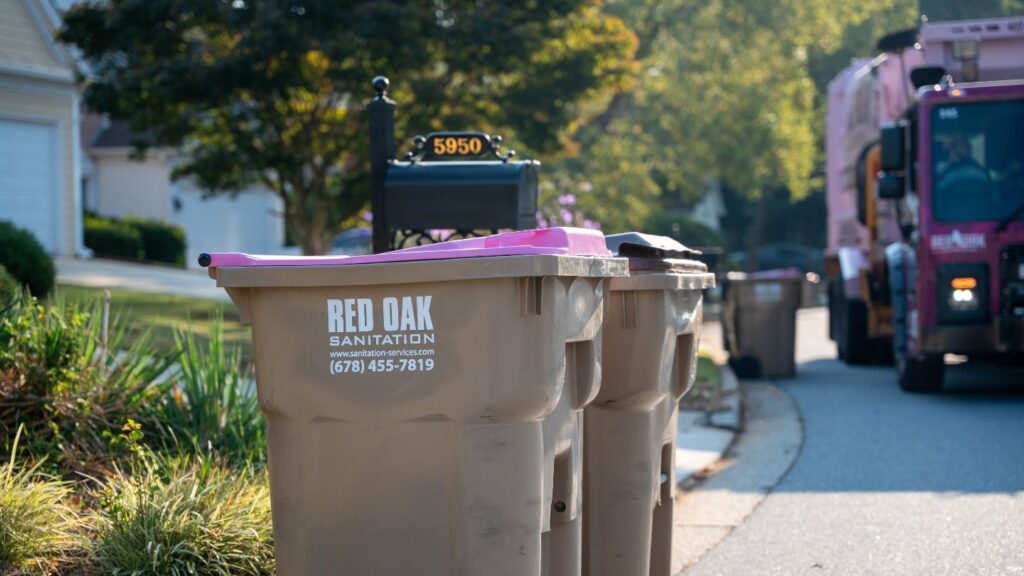
The primary reasons for HOA trash can rules revolve around maintaining community aesthetics, controlling animal activity, and preventing identity theft. These regulations are essential for preserving property values and ensuring that residents take pride in their neighborhood.
Understanding the rationale behind these responsible rules encourages residents to comply for a good reason, fostering a cleaner and safer street community. There are good reasons to support this initiative.
Aesthetics and Curb Appeal
One of the most compelling reasons for HOA trash can rules is to maintain the visual appeal of the neighborhood, which directly impacts property values. Unsightly trash cans can detract from the neat and attractive appearance that most homeowners desire. Enforcing consistent trash can placement and storage rules allows HOAs to create a cohesive and visually pleasing environment.
Ineffective waste management can lead to excess garbage on community properties, which not only looks bad but also can cause unpleasant odors and attract pests. Properly managed trash cans contribute to a cleaner and more attractive community, making it a place where residents feel proud to live.
Services like yard waste removal also play a crucial role in maintaining community cleanliness and aesthetics. Proper management of all waste types by HOAs keeps neighborhoods looking their best, which is crucial for maintaining property values and resident satisfaction.
Animal Control
Rummage through proper trash can management is essential for preventing wild animals and stray animals from rummaging through garbage, which can lead to dangerous infestations and health hazards. Placing outdoor trash cans in designated areas and ensuring they are securely closed reduces the likelihood of attracting unwanted animals.
Effective trash can management not only reduces pests but also contributes to a more pleasant living environment by preventing unpleasant odors and maintaining overall community cleanliness. Following these trash rules contributes to a safer and more hygienic community for everyone.
Identity Theft Prevention
HOA trash can rules also play a role in preventing identity theft. Thieves often target discarded documents in trash cans, seeking sensitive information like bank statements and credit card offers. Securing trash cans and placing them in less accessible areas helps reduce the risk of identity theft and protects personal information.
Common Issues with HOA Trash Can Compliance and Solutions
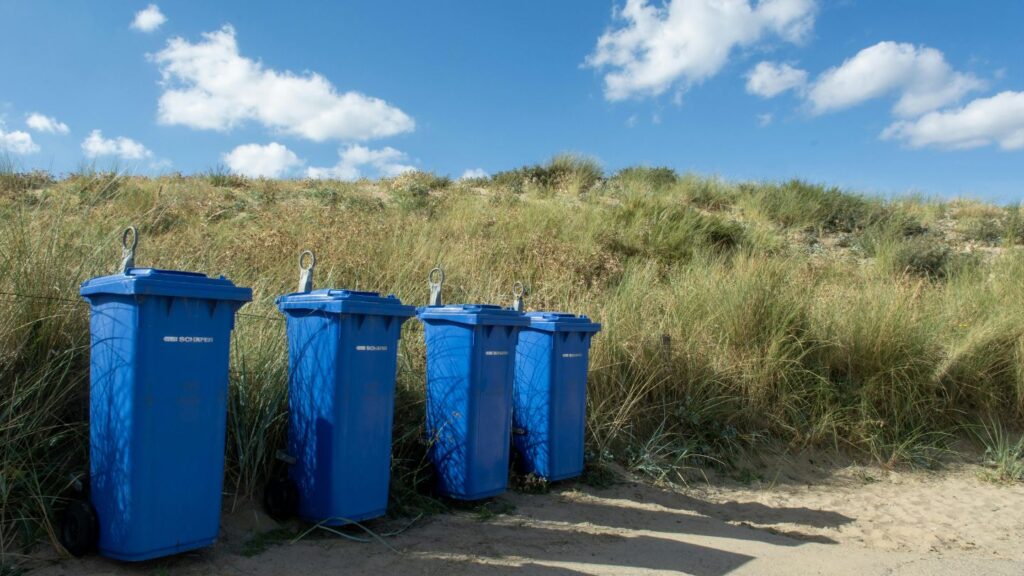
Compliance with HOA trash can rules can sometimes be a trouble due to various issues such as inadequate trash services, difficulties with large item disposal, and increased trash volume during certain seasons, which the board member must address.
Addressing these common problems with practical solutions helps residents and HOAs maintain compliance and keep the community clean and orderly.
Inadequate Trash Services
Inadequate trash services can lead to significant problems such as garbage accumulation, a lack of adequate garbage bins, and insufficient pick-up frequency. Third-party vendors may sometimes leave trash behind or improperly dispose of waste, which highlights the importance of understanding trash pickup dos and don’ts to ensure proper collection and prevent compliance issues.
One effective solution is to:
- Observe community needs and evaluate trash production.
- Plan for more recycling bins or pickups as necessary.
- Adjust the number of bins or the frequency of pick-ups
This approach ensures that trash is handled efficiently and effectively.
Large Item Disposal
Disposing of large, bulky items like old furniture, appliances, and mattresses can be a significant challenge, especially when dealing with materials that require special handling, such as understanding how to store and dispose of paint properly to avoid contamination or improper disposal.
A recommended solution is to hire third-party vendors for regular pickup of large items. Services facilitate bulk item collection, allowing residents to conveniently dispose of larger items and maintain the community’s cleanliness and aesthetic appeal.
Seasonal Trash Volume
Holidays and other seasonal events often lead to a surge in trash volume within communities, which can possibly overwhelm regular trash services, necessitating extra service or adjustments in trash collection schedules for the future.
HOAs should plan for these peak times by hiring extra service for more regular pickups. Temporary adjustments in trash collection services during high-volume periods can help manage the increased waste and maintain community cleanliness.
Making HOA Trash Can Rules Reasonable
Residents often express frustration over strict HOA regulations regarding trash can placement and visibility. HOAs should avoid mandating late-night trash can placement to mitigate safety risks, making the rules more reasonable. Providing a reasonable timeframe for residents to return their trash cans after collection helps accommodate different schedules.
Additionally, HOAs can assist disabled residents by allowing variances that make it easier for them to manage trash can placement. Setting up enclosures or screens can help conceal trash bins, maintaining community aesthetics while accommodating residents’ needs. Partnering with providers that specialize in HOA government services ensures that waste management processes are efficient, compliant, and tailored to meet the needs of every community.
Keeping Your Community Clean and Compliant
Ensuring your trash cans meet HOA regulations is more than just following rules; it’s about maintaining the cleanliness, order, and visual harmony of your neighborhood. Proper placement, storage, and compliance with pickup schedules help prevent fines, keep streets clutter-free, and preserve your community’s curb appeal. When every resident does their part, the result is a cleaner, more attractive, and better-managed environment for everyone.
At Red Oak Sanitation, we make it easy to stay compliant with HOA waste guidelines through dependable trash service in Atlanta. Our team provides efficient, on-schedule collection designed to meet community standards while promoting cleanliness and convenience. Partner with us for seamless waste management that keeps your property and neighborhood looking its best.
Frequently Asked Questions
Why are HOA trash can rules important?
HOA trash can rules are essential for ensuring community cleanliness and preserving property values by preventing overflowing bins, unauthorized dumping, and animal infestations. Adhering to these regulations fosters a more appealing neighborhood environment.
What happens if I violate the HOA trash can rules?
Violating HOA trash can rules can lead to monetary fines or temporary loss of community privileges. Adhering to these regulations is essential to avoid such penalties.
How can I dispose of large items like furniture or appliances?
To dispose of large items like furniture or appliances, consider hiring a third-party vendor that specializes in bulk item collection. This approach ensures a convenient and responsible disposal process.
What should I do if my community experiences increased trash volume during holidays?
To effectively manage increased trash volume during holidays, it is advisable for homeowners’ associations (HOAs) to schedule additional trash pickups and make temporary adjustments to collection services. This proactive approach will help maintain cleanliness in the community.
